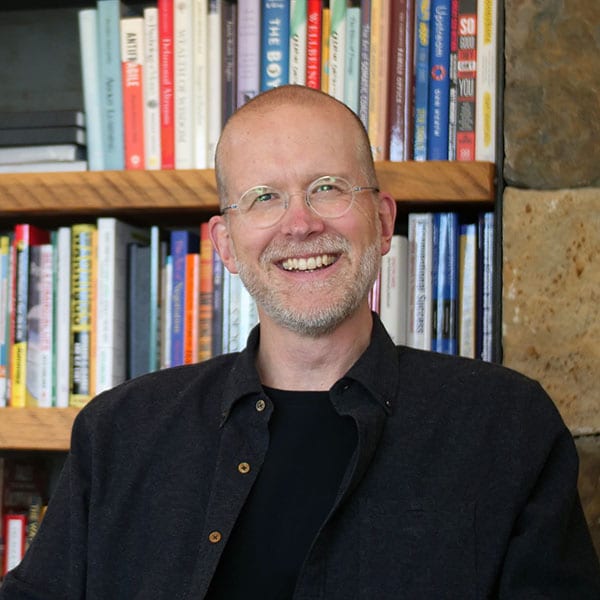I have always believed that “integration” of financial wealth is one of the simplest ways to explain the goal of those that inherit or suddenly come into financial capital. The aim is not just to “preserve” financial wealth over generations. The goal is healthy, mature, adult family members who have integrated their financial wealth into their lives to the extent that they are able to deploy it (in business, personal, or philanthropic ways) productively without shame or fear. But … how can you know whether someone has integrated financial wealth fully? What are the clues, signs, or observable consequences of successful integration?
To answer this question, I’m going to borrow from Michael Beckwith’s wonderful “to me,” “by me,” “through me,” and “as me” framework–which I love, and which has in turn been borrowed by one of my favorite resources, the 15 Commitments of Conscious Leadership. If you don’t know this framework, it’s worth checking out. I am also borrowing throughout from the intellectual history on integration laid down by my compatriot Jay Hughes in his various books, particularly (and most recently) from The Cycle of the Gift and The Voice of the Rising Generation. Finally, by way of introduction let me say that the thoughts here apply as much to a newly successful “post-liquidity event” entrepreneur or to a recently divorced spouse with a large settlement as they do to an inheritor. I use “inheritor” as shorthand throughout, but it should be read broadly.
To Me
First, what does non-integration of financial capital look like? It typically looks reactive. An unintegrated inheritor will feel that things are being done “to” them, that the financial capital is a burden that they cannot manage, that advisors and others around them are trying to take advantage of them (or be overly solicitous of them), and that in general they are subject to something imposing upon them from the outside. This person may be angry at whoever left them an inheritance–such as a deceased parent or grandparent–or harbor shame, guilt, or other negative feelings about their financial capital. Again, the dominant quality is reactivity–they are reacting to something that they perceive to have happened to them.
A reactive inheritor can behave in many different ways: spending too much, on the one hand, or refusing to use their financial capital at all, on the other. Often they simply freeze in place, unable to figure out how to react and thus trying to do nothing at all. The key point is that a person who has not integrated their financial capital will feel “done to” by that capital.
Jay Hughes has been using the term “incorporating,” as opposed to “integrating,” to describe this first phase of reactivity that can occur when someone inherits. A person may “incorporate” their financial capital–deal with their advisors, work with their lawyers, do tax planning–without really ever “integrating” that wealth into their life in a proactive, purpose-driven way. Again, they are “managing” something happening “to” them, as one might manage a bad flu.
By Me
A person that has begun to truly integrate their financial capital will most likely have moved from a “to me” mindset to a more “by me” frame. They are likely to feel more empowered to do things with the financial capital in the world–to use it, either for personal, business, or charitable purposes. In particular, a well-integrated inheritor will be proactive, rather than reactive, about their use of their financial capital. They will not feel that it is happening “to” them, so much as that they can use that capital to manifest things in the world.
Subjectively, this person will feel a sense of openness, possibility, and opportunity. In recent conversations with Jay Hughes, he has described this as a “re-birth” or second phase of life, in which an inheritor or person that has acquired material wealth realizes that they have a new lifetime in front of them in which to use and deploy those resources. The internal sign of this may be that excitement and joy about the upsides of their financial capital (and what they can do with it) replace negative emotions, such as shame, guilt, or fear, that may have been their experience prior to really integrating their financial capital. Some of those negative feelings may still be present, but they are likely of lesser significance than the newer, positive emotions that integration can bring.
Objectively, looking from the outside-in at a person who has integrated their financial wealth, you are likely to see that the person has more energy around, vitality towards, and interest in the deployment of that capital than they did previously. They will be more engaged, more active, and more excited. This does not mean they will necessarily be spending more or even giving more away–but they will energetically be more activated than a person who has not fully integrated their financial capital into their sense of self.
It is worth noting that receiving a financial inheritance can serve as a catalyst for growth from “to me” to “by me.” In the best case, it may empower an individual or give them means to do more in the world than they could previously. This new-found agency may create a virtuous cycle, where a person learns to do more with their resources, realizes that things are created “by” them, feels success in these endeavors, and thus begins to shift their general mindset about the world from a more victim, blaming, “to me” stance to a more active, agentic, “by me” consciousness. This does not always happen. But one can hope that financial capital might have this effect, as least for some people some of the time.
Through Me
Integration may continue even after a person switches from a predominantly reactive (“to me”) orientation to a more proactive (“by me”) stance. In particular, a person may come to understand the ways in which financial capital allows things to occur “through” them, as they gently channel or shape the energy that financial capital represents and allow things to manifest around them.
This “through me” experience is somewhat akin to the change that occurs when someone has practiced their musical scales enough that their sense of being the active, conscious (“by me”) player drops away and they feel the music emerging through them organically. It has also been compared to the shift a surfer might experience from perceiving themselves as the active agent (e.g., “I am using my skills to read and surf this wave–it is my doing”) to perceiving themselves as part of the ocean’s movement (e.g., “the ocean’s force is expressing through me on this wave–I am staying out of the way and just letting that flow power through me”). (Personally, I am still very much a “to me” surfer: I feel knocked around and tumbled over more than any feeling of either agency or flow!)
The integrative journey for an inheritor may never reach a “through me” phase. This is not a failing. If a person can shift from “to me” to “by me” vis-a-vis their life, in general, and their financial capital, in particular, this is a lot. Developmentally, becoming a proactive, agentic, self-possessed actor that can do things with financial capital is enough to lead a productive and engaged life.
“Through me” consciousness requires letting go of control and surrendering in a way that “by me” does not. This surrender can be a relief when it comes to financial capital. Put simply, when an inheritor experiences their financial capital as a “by me” tool to wield in the world, that can become a bit overwhelming. There is so much to do, so much that can be done, so much potential–it can feel very burdensome. Thus, if a person releases some control and surrenders into understanding that things are happening through them, without them necessarily being the dominant playmaker at the center of the story, it can be a more gentle, relaxing, and fulfilling experience. Their integration of their financial capital is likely to look more effortless than before, and perhaps more joyous or full of wonder.
It is worth noting that as a person moves in to “through me” (and “as me”), the task of integrating takes on a qualitatively different character. The implicit frame on integration is that one is bringing something from outside–in this case, financial capital–“into” the self or into one’s person. This assumes, however, a sharp break between interior and exterior, self and other, subjective and objective. As a person rests in through me, or even more so, as me, awareness, these distinctions shift or dissolve somewhat. And so, in turn, the task of integration takes on a different hue. Rather than integrating something foreign (the financial capital) into the self, a larger integration of self into the whole becomes more salient. And rather than being a “task” to accomplish in the normal sense, it becomes increasingly obvious that there is nothing that needs doing, because the individual and the whole are already integrated. The interesting bit, for our purposes here, is that the addition of excess financial capital to this process can be quite energizing, as a person in “through me” awareness begins to recognize the ways in which their financial capital can contribute.
As Me
Finally, Beckwith describes a fourth type of consciousness or spiritual development–experiencing the greater forces of existence (whether we call that God or some other name) expressing in and “as me,” not merely “through me.” This is often left undiscussed, but it references the mystical non-dual experience of being an individual expression of something infinite–of being, literally, not just a part of a whole but instead the entire expression of the whole in one minute part. This shift lets go of the notion of “I, me, or mine”–of a unique and distinct self–in the way that we normally experience that identity, and relieves us of the idea of some separateness that needs to be rejoined, repaired, or otherwise overcome. No separateness, no problem. Just so.
An inheritor who has reached this sort of understanding will likely, it seems to me, focus their energies on spiritual and compassionate pursuits. As the Buddhist teachings have long repeated, emptiness is the great womb of compassion. The evidence that an inheritor has reached this point will be a focus on embodying the best qualities possible, and doing work in the world–by, through, and as–that expresses the oneness that an “as me” understanding brings.
One of the most telling signs of ongoing integration is that the last remnants of scarcity thinking are likely to fade as a person inhabits “through me” and “as me.” It is worth noting that a “to me” inheritor–even of a very large sum of financial capital–can still exhibit extreme scarcity logic and behavior. They can feel there isn’t enough: enough money, enough time, enough love, etc. In “by me” consciousness, scarcity still appears: although I am now more proactive than victim, I may still feel there is not enough: enough time to complete my work, enough help from friends or colleagues, enough impact. Only as a person moves into “through me” and “as me” growth does the sense of scarcity tend to dissolve. Slowly or rapidly, the person is likely to come to rest at last in the feeling and realization that there is enough–in their life, in the world, both materially and less so.
Concluding Thoughts
Many coaches, consultants, and family office professionals espouse “integration” of financial capital into the life of an inheritor. The more clear we can be on what that means, and on how that integration may change over time, the more helpful such conversations can be.

